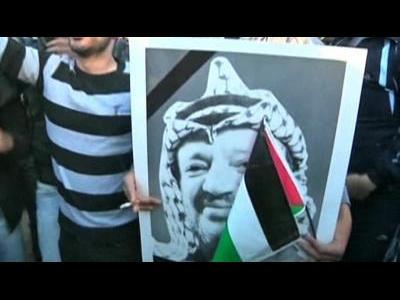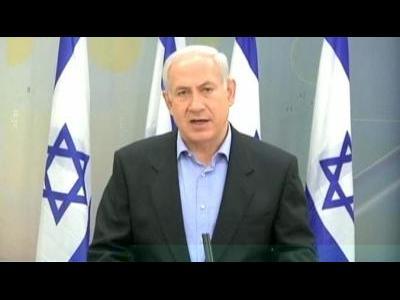Talks with Israeli envoy Yitzhak Molcho were hosted by the US embassy, with Washington represented by David Hale, assistant to US Middle East envoy George Mitchell, an embassy spokesman told AFP.
The European Union was represented by senior official Helga Schmid, said an EU official in Jerusalem.
Middle East envoys Sergei Yakovlev and Robert Serry also attended, representing Russia and the United Nations respectively, other diplomats said. The envoys later met Palestinian chief negotiator Saeb Erakat, officials in the West Bank town of Ramallah said.
Richard Milton, spokesman for Serry, acknowledged that the two sides were still far apart.
The Quartet envoys were "seeing serious contradictions in the views of the parties on how to bring about resumed negotiations on all core issues, including borders and security," he told AFP.
"Quartet principles will meet in mid-April," a month later than planned, Milton said.
The Quartet is seeking to push the Israelis and Palestinians into renewing some kind of peace negotiations, which ran aground last September over an intractable dispute about Jewish settlements.
However, a Palestinian official told AFP on condition of anonymity that the Quartet's contacts on Thursday produced "no result" that would allow a resumption of dialogue. "The meeting was unable to reach a result to resume the talks" between the two sides, the official said. As the diplomats shuttled back and forth, Israeli and Palestinian media reports suggested Mitchell himself could make an appearance in the region next week after an absence of three months. Diplomatic efforts to engage the two sides have increased ahead of a planned key meeting of Quartet principals that had been expected to take place in Paris later this month. However, Erakat told AFP on Thursday the meeting of the Quartet -- which groups the United States, Russia, the European Union and the United Nations -- has been delayed until April 15. The Quartet meeting was to have taken place next week in Paris.
Israeli press reports had earlier suggested a postponement could possibly allow Prime Minister Benjamin Netanyahu time to float a "new" peace initiative. Although details of Netanyahu's initiative have yet to be made public, close aides have been quoted as saying it involves establishing a Palestinian state on temporary borders in the framework of a long-term interim agreement -- in a plan to be outlined in Washington. But Palestinian prime minister Salam Fayyad said on Thursday the time had come for the Israeli leader to lay his cards on the table.
"It is time for the international community to ask Israeli Prime Minister Benjamin Netanyahu: does he accept the establishment of a Palestinian state on all the lands occupied in 1967 -- yes or no?" he told AFP on a visit to Jericho. And he also rejected the idea of a temporary state. "The only initiative that can work is one which leads to the establishment of a Palestinian state on all lands occupied in 1967 and not on part of it," Fayyad said. Meanwhile, a spokesman for President Shimon Peres said he was seeking to secure an audience in Washington with US President Barack Obama in order to discuss options for reviving peace efforts.
Peres is one of a number of senior Israeli officials who has previously backed the idea of setting up a Palestinian state within provisional borders as part of an interim agreement.Since the expiry last September of a temporary ban on settlement building -- which Netanyahu refused to extend -- the Palestinians have refused all direct contact with the Israelis, saying they will not talk while settlers build on land they want for a future state.


 Play Video
Play Video  Play Video
Play Video  Play Video
Play Video
No comments:
Post a Comment